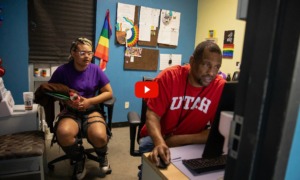Federal Reserve Chairman Ben Bernanke has stressed the importance of financial literacy following the financial crisis that left millions without work and stable retirement accounts. But a recent study by the Securities and Exchange Commission found that average American investors have an alarmingly weak grasp of elementary financial concepts. The study affirms what the Financial Industry Regulatory Authority found – that young adults have the lowest level of financial literacy of any age group.
financial literacy following the financial crisis that left millions without work and stable retirement accounts. But a recent study by the Securities and Exchange Commission found that average American investors have an alarmingly weak grasp of elementary financial concepts. The study affirms what the Financial Industry Regulatory Authority found – that young adults have the lowest level of financial literacy of any age group.
To parents of busy, distracted teenagers, this will come as no surprise. We’re calling them the “boomerang generation” today: circling back home to save money, and getting a little too financially dependent along the way.
But what about kids who don’t have that option?
In many states, young people in foster care can no longer be part of the system once they turn 18. They find themselves abruptly living without a safety net – a week away from losing a home, not eating, or not covering the next heating bill. They’re financially living on the edge and struggling to meet basic needs. How can they be expected to learn basic financial concepts, and save for a better future?
My colleagues – Margaret Sherraden and Ann Marie Kuchinski – and I have found that, surprisingly, they can. Our report, Enduring Assets: Findings from a Study on the Financial Lives of Young People Transitioning from Foster Care, found that a combination of financial education and matched savings programs helped young people who “aged out” of foster care lead financially stable lives long after they’ve left the system.
The research was based off participants in Opportunity Passport, a package of resources designed by the Jim Casey Youth Opportunities Initiative that teaches young people who have been in foster care how to manage their finances, and matches their savings toward purchases such as rent or a car to get to work.
We found that the key to ensuring financial stability in these young people is to allow them to juggle responsibilities and even make mistakes in order to truly understand how their decisions impact their finances. Those growing up in intact families often have a strong network to rely on when they’ve made a bad financial decision – like renting an apartment straight out of school when they can’t afford it. For young people who aged out of foster care, who don’t have that safety net, a bad financial decision could mean homelessness.
It’s unrealistic for us to believe that individuals who have had caseworkers decide their every move for years, if not a lifetime, should be able to make major financial decisions on their own. When faced with the real world, young people transitioning from foster care must receive better education and supports that help them learn how to spend and save wisely.
Before using the financial education and matched savings tools, one young woman never even had a bank account, let alone any sort of training on how to manage her personal finances. Growing up, her foster mother tried to teach her about saving by taking a portion of her part-time earned paycheck and putting it in a drawer. But by learning about putting money in a bank account, saving for purchases, and building a cushion for emergencies, she has now been able to pay for her Certified Nursing Assistant classes, a laptop to use for classes and a car to get her there.
The SEC report about American’s financial illiteracy is alarming and begs the question: What do we do about it? When it comes to a specific subset of the young adult population – those who have aged out of foster care – we know what works. We also know what happens when we don’t step in with stronger supports.
More than one in five young people who aged out of foster care will become homeless after age 18. Only half are employed by age 24. One in four will be involved in the justice system within two years of leaving foster care. Too many are just going from one system to the next.
Providing financial education is a critical step toward breaking the cycle. These young people can only invest in their future if we invest in them first. Policies and practices cannot underestimate the importance of financial literacy, and must place a stronger emphasis on building the knowledge and skills needed to manage financial lives during, and beyond, their time in foster care. They may not have the choice to “boomerang” back home, but they deserve the same support in order to learn and grow as successful adults.
Clark Peters, Ph.D., M.S.W., J.D., is an assistant professor at the University of Missouri School of Social Work and Truman School of Public Affairs, focusing his work primarily on child welfare, adolescents in state care, and juvenile justice.


























